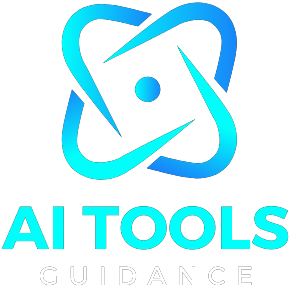The growth of technology is clear, as AI transforms numerous businesses. From editing videos to automating workflows, processes are becoming easier and more effective. However, what tools can the ever-growing world of AI offer us in 2025? In this blog post, we will examine the leading artificial intelligence technologies available today and help you select one that best meets your requirements.
Check out: Best AI Tools
Defining AI Technologies: What They Are and Their Significance
1. What Are AI Tools?
As the name itself suggests, AI technologies are algorithm-driven computer programs that replicate human activities, such as learning, automating tasks, formulating predictions, and generating ideas.
2. Why Are AI Tools Essential Today?
Every individual and corporation wishes to maximize their productivity while minimizing their expenditures. Moreover, AI automates small, menial tasks, thus saving an unparalleled amount of time. The sheer speed at which big data can be processed nowadays is astounding, and the use of AI is paving the way for a faster economy.
3. Common Types of AI Tools in Use
There is an extensive list of suggested AI tools that can be used today, including automation software, predictive analytics platforms, marketing AI tools, self-learning integrated language AI systems, and chatbots. Each AI tool is specialized to resolve a specific challenge or enhance the corresponding workflow.
Best AI Technologies for Content Creation and Marketing in 2025
1. Jasper AI: An AI Writing Assistant for Marketers
Anyone involved in marketing knows and appreciates Jasper AI as one of the best AI writing assistants in the industry since its implementation in 2025. Posters can easily create converting ad copy, high-engagement blogs, and product descriptions with Jasper’s help.
- How it works: Utilizes NLP (Natural Language Processing) to create human-sounding content.
- Key features: Long-form blog writing, ad copy, tone shifts, brand voice memory.
- Pricing: Starts at $49 per month for Creator and $125 per month for Teams.
Read: Writesonic vs Jasper
2. Copy.ai: Quick Content Generation
Copy.ai is also well-liked for its efficiency in creating short-form content. That includes social media posts, headlines, and even email subject lines. It provides excellent value and fulfills the needs of content creators who expect quick results.

- How it works: Trained on billions of data points to provide short-form marketing copy.
- Key features: Email templates, Instagram caption templates, and landing page copy templates.
- Pricing: A free plan is available; Pro starts at $49 per month.
3. Surfer SEO: AI Content Optimisation
It’s a good idea to combine Surfer SEO with other writing tools. Surfer analyzes competitors and creates guides that include the proper structure, keyword usage, and word count, which helps your content rank higher.

- How it works: Analyzes top-ranking pages and gives on-page SEO recommendations.
- Key features: SERP analyzer, content editor, keyword clustering.
- Pricing: Starts at $89 per month for basic features.
4. Pictory: AI Video Creation
Marketers who want to create videos without technical know-how will love Pictory, as it automatically turns blog posts and scripts into videos. The AI performs editing, adds captions, and selects scenes.

- How it works: Translates scripts or blog posts into short videos with AI editing.
- Key features: Auto-captioning, voiceovers, text-to-video.
- Pricing: Basic plan is $19/month; Premium plan is $39/month.
Best AI Tools for Businesses And Automating Workflows
1. Zapier AI: Smart Task Automation
Integration of AI into Zapier allows user to automate their workflows more succinctly. Now, users can construct complicated task automations without needing code, which will enable them to save on monotonous tasks.

- How it works: Links apps and builds automated workflows (Zaps).
- Key features: Multi-step workflows, built-in logic, AI triggers.
- Pricing: Free plan; paid plans from $29.99/month.
2. ChatGPT for Business: Advanced Intelligent Customer Care

Businesses have access to ChatGPT for Business, which features conversational AI that can enhance customer service interactions, respond to frequently asked questions (FAQs), and even aid in lead generation.
- How it works: Leverages GPT-4 Turbo to create human-like responses in real-time.
- Key features: Custom GPTs, API integration, memory for context.
- Pricing: $20 per month (individuals); business pricing is available upon request.
3. Notion AI: Productivity Optimizer
Notion AI fosters teamwork by providing a wide variety of functions such as note summarization, answering document-related questions, and auto-populating meeting templates.

- How it works: Integrates AI into Notion’s workspace for task management and content summarization.
- Key features: Auto summaries, AI Q&A, and doc creation.
- Pricing: Add-on for $ 8 per user per month.
4. Grammarly Business: Automatic Written Communication Improvement
Professional documents sent and received by teams are transformed by Grammarly Business using AI to enhance the tone, clarity, and grammar of business communications.

- How it works: Scans content and offers AI-based grammar, clarity, and tone recommendations.
- Key features: Team usage, style guides, tone detectors.
- Pricing: From $15/user/month.
AI Tools for Developers and Data Scientists
1. Fireflies.ai: Transcribing and Summarizing Meetings

With Fireflies.ai, meetings can be recorded and transcribed to automatically summarize the main details using AI, substantially improving productivity while reducing the manual effort required for note-taking.
- How it works: Records and writes down virtual meetings, then employs AI to distill the main points.
- Key features: Zoom, Google Meet, MS Teams integration.
- Pricing: Free limited plan; Pro at $18 per user per month.
2. DataRobot: Predictive Analytics with Artificial Intelligence Integration

DataRobot enables data scientists to easily build, deploy, and manage machine learning models without manual work.
- How it works: Automates the ML lifecycle from model building to deployment.
- Key features: AutoML, time-series forecasting, model interpretability.
- Pricing: Custom pricing (enterprise-level).
3. Amazon SageMaker: Scalable Machine Learning
The complete framework offered by Amazon SageMaker for training and deploying machine learning models in enterprise settings is unparalleled.

- How it works: Offers Jupyter-based IDE for ML training, building, and deployment.
- Key features: Studio notebooks, pipelines, labeling tools.
- Pricing: Pay-as-you-go depending on services used.
4. Google AutoML: Automated Technical Tasks

Using Google AutoML does not require extensive knowledge of machine learning because it provides an accessible interface for even novice developers, streamlining the process of building and refining complex algorithms.
- How it works: Allows non-experts to train models using Google’s AI platform.
- Key features: Vision, language, translation, structured data modeling.
- Pricing: Based on usage, it starts at a few cents per prediction.
How To Select The Right AI Tool For Your Needs
Determining Your Objectives And Problems
Before selection, conduct research into the problems you wish to solve. Is the goal centered around advanced data analytics, task automation, or content generation? This will provide a clearer list of options.
1. Analyze Functions and Their Ease Of Use
Seek out solutions that provide an easy-to-use interface, wisely designed button placement, industry-specific functions, and many software integrations.
2. Examine Pricing Options and Scalability
What the current top AI tools are also depends on how much available capital you have. Look for free trials, pricing plans, and long-term growth prospects.
The Future of AI Tools: Important Trends for Watching in 2025 and Beyond
1. The Emergence of Multimodal AI
AI programs are advancing progressively, enabling the simultaneous processing of multiple data types, such as image, text, and audio. This allows the creation of new, more versatile and dynamic applications.
2. AI Tools Designed For Human Use
The primary goal of the AI tools is not to substitute humans, but to assist with tasks. Expect increased intelligence of aids, decision-making help, and enabling smooth alliances with the technology.
3. Ethical AI and Data Privacy
With the advancement of data processing AI tools, users and creators underline the importance of compliance with ethics, transparency, and data privacy laws on a global scale.
Final Thoughts
Which AI tool is the best? Depending on your requirements, the answer changes. In 2025, content creators, entrepreneurs, IT professionals, and even data-savvy researchers will have access to an astounding array of AI-automated solutions designed to enhance their performance and efficiency. As always, remain alert to changes and define goals to succeed. Remember—AI powers the new work paradigm.
Read more: Is DeepSeek Better Than ChatGPT?










